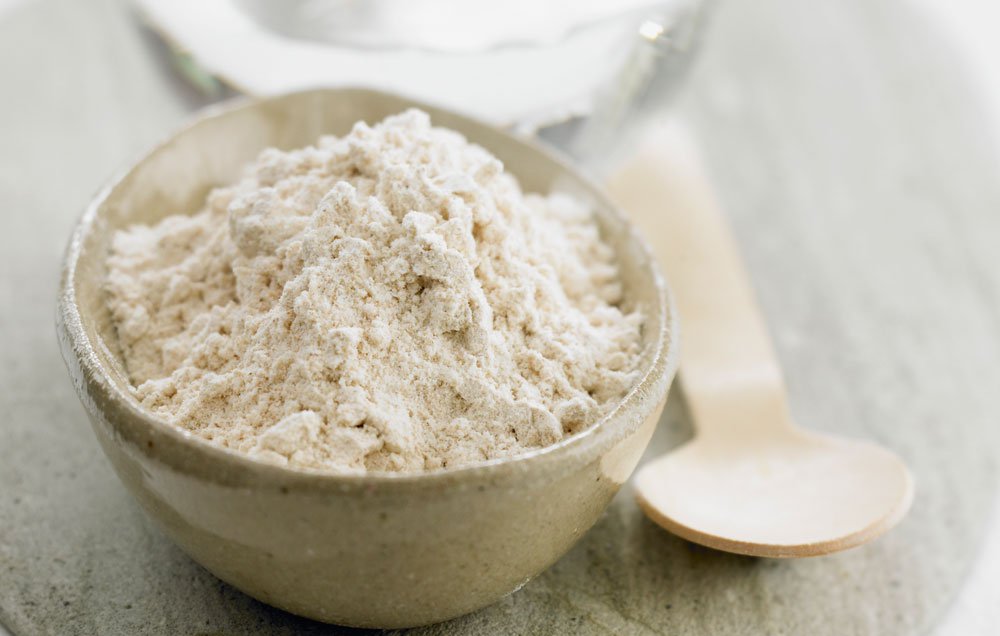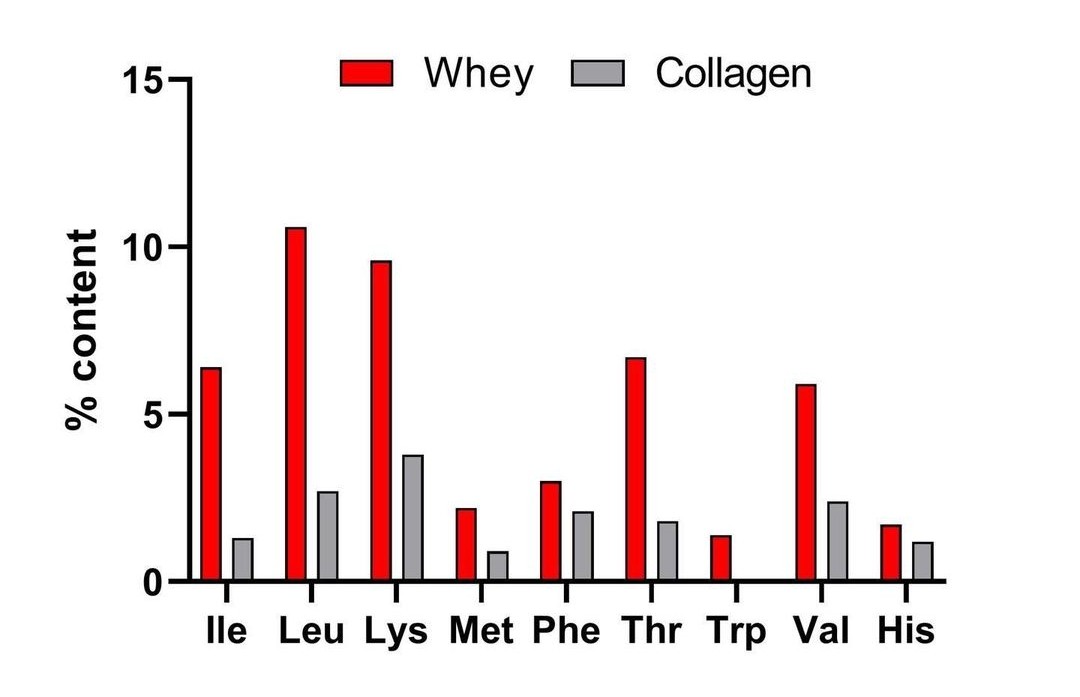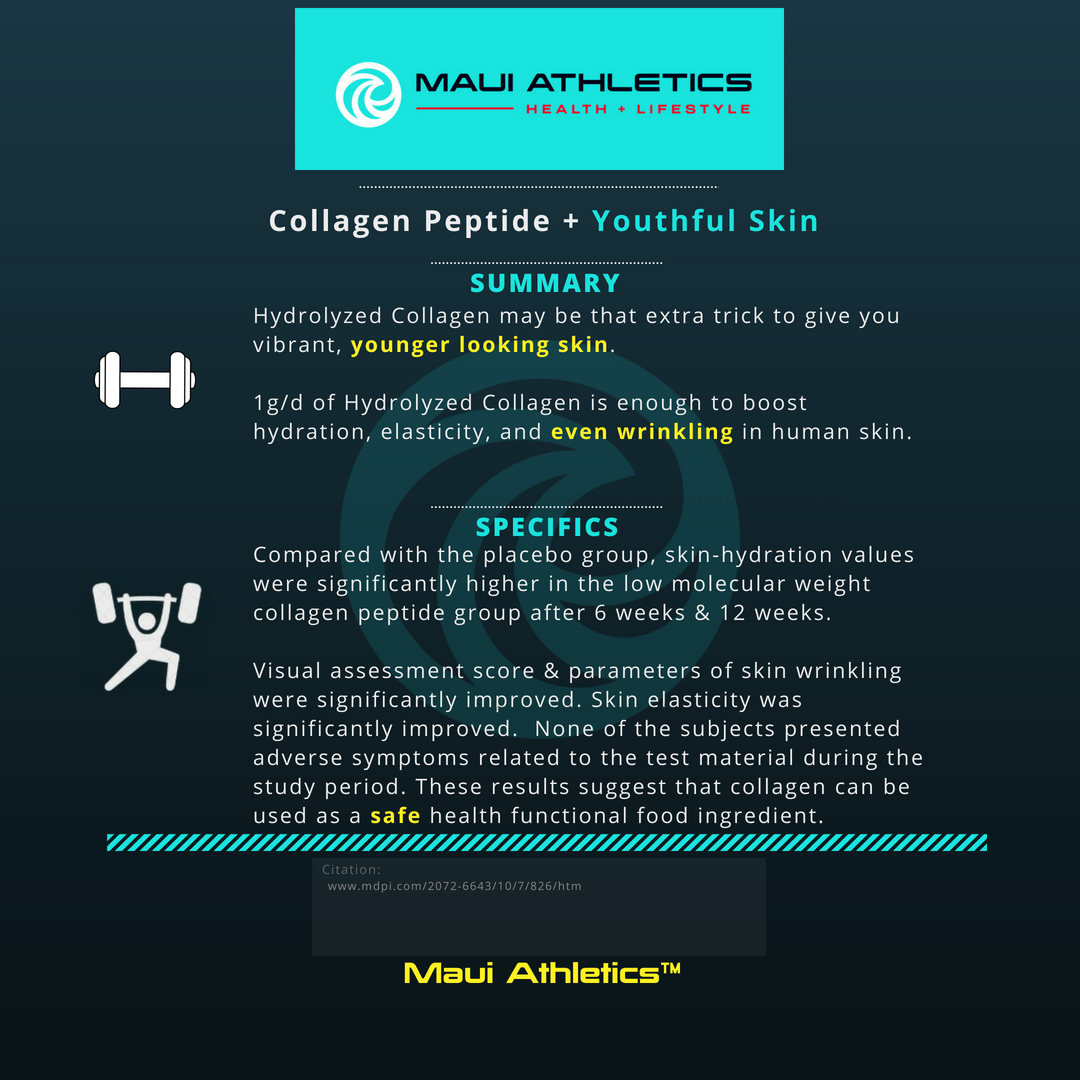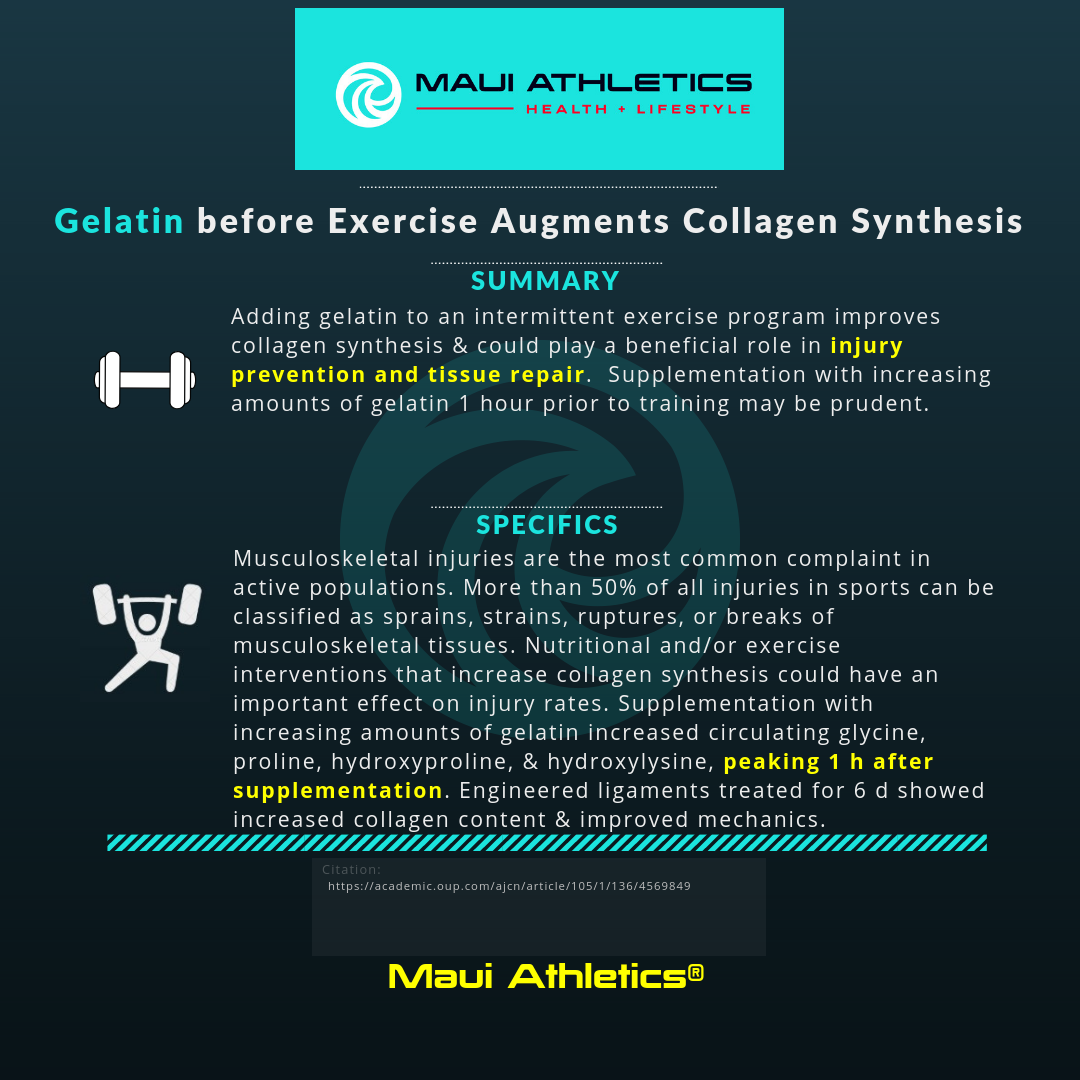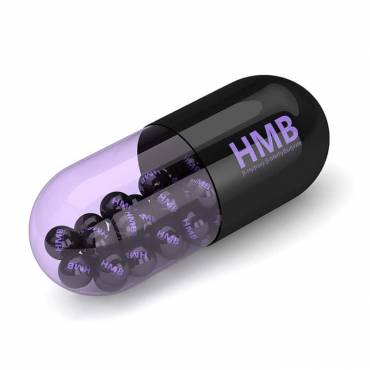Hydrolyzed Collagen
Collagen: Micro-Entry
Overview
Supplemental hydrolyzed collagen may improve language cognitive function, help boost skin hydration, elasticity, and wrinkling, as well as provide benefits for overall joint health for those with osteoarthritis when undenatured Type II collagen is used. Joint health benefits may be especially relevant for aging populations as improved comfort during exercise could translate to more significant health returns from resistance/cardiovascular training.
The literature suggests potential benefits for skin as low as 1g/day, but the bulk of studies show overall benefits from 2.5-15g/day (although results are equivocal). The latter range may be attained in the average American diet. This is not to say that supplementation may not be useful for those in certain populations, however.
It is important to understand that the protein quality of collagen cannot be considered equivalent to other whole protein sources due to amino acid composition. For this reason, I do not recommend using it to meet daily protein targets.
Given the current level of evidence (poor), I am skeptical about the actual magnitude of benefits for skin health. Most studies that suggest an effect use subjective measures and are sponsored by collagen companies. This is not to say that it cannot work, only that further research is needed before drawing a conclusion.
For information regarding beef protein isolate/hydrolyzed collagen use as a muscle builder and performance enhancer, please check out our article on the subject.
Research
1g/day of Hydrolyzed Collagen is enough to boost hydration, elasticity, and even wrinkling in human skin.
Adding gelatin to an intermittent exercise program improves collagen synthesis & could play a beneficial role in injury prevention and tissue repair.
“Collagen hydrolysate supplementation improved knee functional mobility on isometric and isokinetic testing when compared with placebo. This suggests that collagen hydrolysate supplementation has the potential to improve knee function during activities that cause high amounts of stress on the joint.” This likely explains the small amount of studies suggesting lean muscle gain when supplementing with collagen. The participants had less pain, which translated into more efficient workouts. Due to the amino acid profile, it is highly unlikely that it is due to the quality of protein itself.
https://journals.lww.com/acsm-msse/Fulltext/2004/05001/Collagen_Hydrolysate_Improves_Joint_Function_in.730.aspx
“Preliminary results are promising for the short and long-term use of oral collagen supplements for wound healing and skin aging. Oral collagen supplements also increase skin elasticity, hydration, and dermal collagen density. Collagen supplementation is generally safe with no reported adverse events. Further studies are needed to elucidate medical use in skin barrier diseases such as atopic dermatitis and to determine optimal dosing regimens.”
https://www.ncbi.nlm.nih.gov/pubmed/30681787
“This study suggests that the effective amounts of functional collagen peptides (2.5 to 15 g per day) observed in the literature are below the maximum level of collagen that may be incorporated in the standard American diet.”
https://www.mdpi.com/2072-6643/11/5/1079
“Preliminary results are promising for the short and long-term use of oral collagen supplements for wound healing and skin aging. Oral collagen supplements also increase skin elasticity, hydration, and dermal collagen density. Collagen supplementation is generally safe with no reported adverse events.”
https://www.ncbi.nlm.nih.gov/m/pubmed/30681787/
“Daily ingestion of CH changed brain structure and improved language cognitive function.”
https://www.mdpi.com/2072-6643/12/1/50/htm

